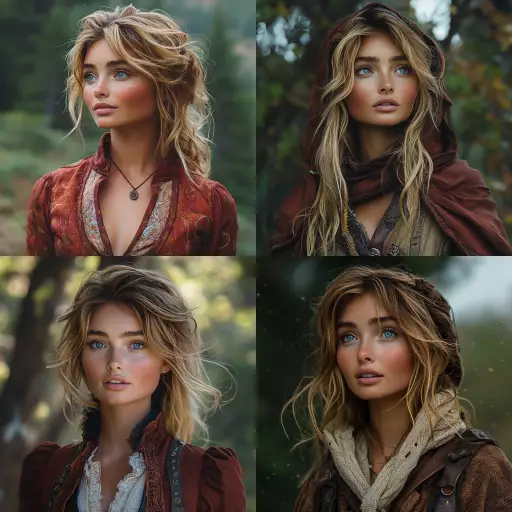Explore the Best AI Image Gallery

The Algorithmic Lens: How AI is Transforming Product Photography
Product photography has long been a meticulous art form, demanding technical expertise and a keen eye for detail. Yet, the advent of artificial intelligence (AI) is ushering in a new era, where algorithms are not only assisting but also revolutionizing this field. From automating mundane tasks to generating stunning visuals with unprecedented ease, AI is reshaping the creative landscape of product photography.
A World of Possibilities: Applications of AI in Product Photography
- Automated Image Editing and Retouching: AI-powered tools can now automate tedious tasks like removing blemishes, adjusting lighting, and enhancing colors, freeing up photographers to focus on the creative aspects.
- Generating Realistic Product Images: Generative AI models are capable of creating entirely new product images from scratch, based on text descriptions or existing templates. This opens up a world of possibilities for showcasing products in diverse environments and scenarios.
- 360° Product Views and Virtual Try-Ons: AI algorithms can stitch together multiple images to create immersive 360° views of products, allowing customers to explore them from all angles. This technology also enables virtual try-on experiences, letting users visualize how products would look on them.
- Personalized Product Recommendations: By analyzing customer data and purchase history, AI can recommend relevant products based on individual preferences. AI-powered chatbots can also provide personalized styling advice and product information.
The Ethical Landscape: Navigating the Challenges
While AI offers immense potential for product photography, it also raises ethical considerations that need careful attention:
- Bias and Representation: AI algorithms are trained on vast datasets, which can inadvertently perpetuate existing biases. It is crucial to ensure that AI-generated images represent diverse demographics and avoid reinforcing stereotypes.
- Job Displacement: The automation capabilities of AI may lead to concerns about job displacement in the photography industry. It is important to consider the impact on human photographers and explore ways to upskill and reskill the workforce.
- Transparency and Accountability: As AI becomes more prevalent, it is essential to ensure transparency in how algorithms are developed and used. Establishing clear guidelines for accountability can help mitigate potential risks.
Looking Ahead: The Future of AI in Product Photography
The future of product photography is undoubtedly intertwined with the continued advancement of AI. We can expect:
- More Sophisticated AI Models: AI algorithms will become increasingly sophisticated, capable of generating even more realistic and nuanced product images.
- Personalized Shopping Experiences: AI-powered tools will enable highly personalized shopping experiences, tailoring product recommendations and visualizations to individual customer preferences.
- Immersive and Interactive Product Displays: AI will play a key role in creating immersive and interactive product displays, blurring the lines between the physical and digital worlds.
The algorithmic lens is transforming product photography, empowering creatives to push boundaries and deliver captivating visual experiences. As AI technology evolves, it promises to reshape the way we interact with products, fostering a more engaging and personalized shopping landscape.
